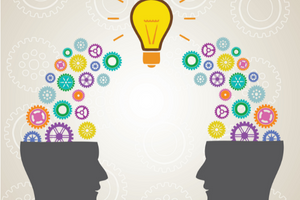One of the most effective and well used management techniques to keep good people from leaving their current workplace to pursue better options, is to operate a language of empowerment, but with a culture of disempowerment. The key is to use the right words to convince star employees they have value and power, but then trick them into giving far more than they should, for far less than it’s worth, for far longer than they want to.
 The empowering language feels so full of promise. Words like inclusion, equity, justice, fairness, collaboration, cooperation, independence, and autonomy, make it easy to assume that the individual is highly valued. Yet this rhetoric is starkly contrasted by the lived experience of powerlessness, control, and constantly feeling devalued.
The empowering language feels so full of promise. Words like inclusion, equity, justice, fairness, collaboration, cooperation, independence, and autonomy, make it easy to assume that the individual is highly valued. Yet this rhetoric is starkly contrasted by the lived experience of powerlessness, control, and constantly feeling devalued.
If you can see this is true of your workplace, here are three ways of seeing this phenomenon for what it really is so you can stop expecting it to be different and find your way free.
1. Archetypal gifts
If you get lost in the individual dynamics of that relationship with your own version of the dominant leader - the tyrant, boss, parent or alpha leader - it all feels so personal and complicated! Yet, as soon as you see this as an archetypal pattern, you can also see the embedded gift. This frees you from wanting it to be easier.
The dominant leader never gives you your time. They may have a language of empowerment, but they always lead with a culture of disempowerment. They might tell you that you are free to do your own thing, but they never let you go. Their gift is to make it very hard for you to leave. They play every trick in the book so that you stay. Tyrants never give back power freely. It must be reclaimed, and often at great cost.
When you see that your controlling boss is simply playing a role in offering you a wonderful gift, you can then see exactly what is required of you to move beyond their resistance and keep growing. You can then be extremely grateful to them for offering the exact personal development challenge you needed. In this way the timeless wisdom of Marcus Aurelius becomes apparent. “The obstacle is the way - The impediment to action advances action. What stands in the way becomes the way".
2. The 7 levels of consciousness
The 7 levels of consciousness (also known as spiral dynamics), developed by Dr Clare W Graves describe Level 4 as ‘The System’. It is the place of rules, safety, stability, responsibility, government, religion, corporations, jobs, and taxes.
The system is neither good nor bad. It is there to teach us important lessons as we grow and develop as human beings so that we are able to proceed to the next level. It is healthy to listen to the instruction and wisdom of others while we are developing our own wisdom. The system teaches us how to live as responsible adults in the real world.
However, while the system promises that it is strengthening, equipping and empowering you to function at your full capacity, if it was fully empowering people, then they would no longer need the system and leave.
The system is inherently structured to keep people within its borders by controlling them through lies and fear. The powerful yet subtle message of the system is, ‘You are weaker than you think. Don’t you dare believe you can venture beyond the safety of these walls or you will surely die’.
Again, this provides a powerful opportunity for growth when you discover the nature of the game and realise you are actually far stronger and smarter than you believed and therefore have all that you need within you to grow to the next level (The entrepreneur) The system won’t let you go, you have to break free.
3. Be the prize
Ultimately it is only personal insecurity that enables, sustains and perpetuates this empowerment / disempowerment problem in the first place.
Insecurity leaves you with no power to create improvements. This causes you to be passive aggressive about the things you don’t like, threatening consequences you have no capacity to enforce.
If you are at all insecure, you cannot afford to confront or offend those you love for fear of what it will end up costing you.
The problem is that everyone knows you are only bluffing. As such, you continue training others to keep treating you poorly. And complaining about it is madness. This is the set-up you have designed. The only way out of the cycle is to eradicate neediness, which means overcoming insecurity. Then you get to show up as the prize instead.
When you turn all the lights on and see that your relationship problems are exacerbated by your own opinion of yourself, this gives you a strong rationale for doing the inner healing work required within your own relationship with yourself before you turn your attention to healing your relationships with others.
More importantly, security positions you as the prize. And as the prize, you are here because you want to be, not because you have to be. If you are not treated the way you deserve and desire, you will no longer want to be here.
Now you have something that is desired. You’ve got options, attraction, appeal. You have something to negotiate with. As the prize, you come to the negotiating table with immense value. As the prize, you dictate terms.
Security means you have options. Insecurity means you have none.